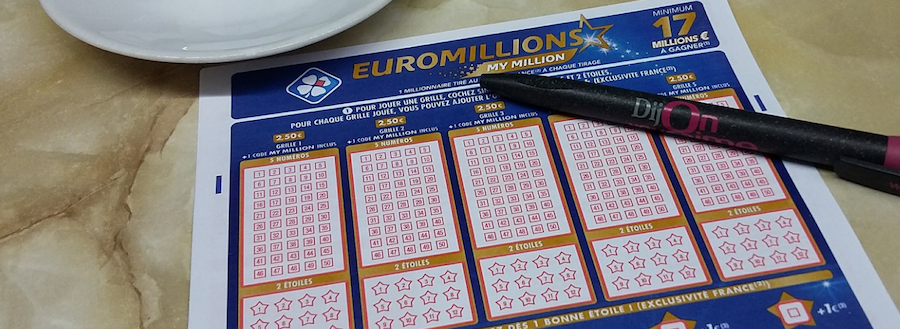Online Lottery Sites Form Trade Association Defending Business Model
A group of international lottery betting operators have joined forces to create a new trade industry association. Lottoland has teamed up with myLotto24, Multilotto, Legacy8 and Lottogo to form the European Lotto Betting Association (ELBA).
In light of recent crackdowns on lottery betting, the ELBA hopes to dispel myths regarding the industry, to forge better relationships with regulators and stakeholders, and to “create a more regulated environment” to care for players.
Lottery betting sites such as Lottoland have irked regulators and lottery operators around the world by allowing customers to bet on the outcomes of lotteries without even buying into the actual lottery. In some cases, lotto betting sites offer bigger jackpots than the actual lottery.
State-sponsored lottery operators have lodged a range of complaints against such websites. Opponents argue lottery betting sites siphon players away from the actual lottery and confuse players into thinking they’re participating in official lotteries.
Additionally, operators argue that lottery betting sites financially benefit off the hard work the lottery does by simply allowing customers to bet on the outcomes of drawings that have been managed and marketed to the public for years.
Operators have also made sure to point out that money spent at lottery betting sites does not go back to the state and does not support good causes. In some cases, the money spent at such websites goes offshore to foreign companies. This last point may be key because it seems to have gotten lawmakers to take notice.
Competition among private companies is one thing, but when a new business model threatens government revenue, don’t expect to wait too long before hearing from regulators. Australia, for example, recently approved a ban on lottery betting beginning in 2019.
Innovative, Disruptive Business Model
Online lottery betting is the definition of a disruptive business model. Not only does it compete with established operators that have held a virtual monopoly over the lottery business, but it also beats them in certain ways.
Lottery operators tend to be slow-moving beasts, comfortable in their perch atop the lotto food chain. Innovation is slow, the house and state take a huge cut off the top and, until recently, players had no other options.
Then came lottery betting with its instant online play, a multitude of betting options and sometimes even bigger prizes than were offered by the very lottery people were betting on. Such a business model was bound to lead lottery betting sites head-on into conflict with established operators around the world.
Established, state-authorized operators may be slow to change, but it would be disingenuous to dismiss their complaints as the silly rantings of old, comfortable beneficiaries of a state-backed monopoly. Likewise, expecting them to sit back and watch as foreign-owned lottery betting sites come in and profit off the games official lottery entities created and marketed would have been foolish.
Regarding Australia in particular, Lottoland did itself no favors striking such a combative tone with provocative ads and referring to complaints from the entrenched Tatts Group of Australian lotteries as nothing more than a “smear campaign.”
Lottoland does raise good points at times, but they should have remembered that companies such as the Tatts Group have friends in high places capable of changing legislation at the national level.
In the run-up to Australia passing a ban on lottery betting, the Tatts Group allegedly funneled hundreds of thousands of dollars in political donations to Australian politicians. Despite making solid points at times regarding issues such as the monopolistic nature of established lotteries and the paltry payout rates offered by them, Lottoland erred in fighting them head-on.
After seeing which way the wind was blowing in Australia, Lottoland attempted to court newsagents by offering them a slice of the revenue for Lottoland customers referred in-store. In an open letter, Lottoland even stressed that it does not offer betting on Australian lotteries and therefore does not compete directly with newsagents. However, it was too little, too late.
ELBA to Take a Different Approach
Now that the lottery betting industry has lost a critical piece of territory in its war for survival, the world’s major lottery betting operators have formed the ELBA to take a markedly different approach.
iGamingBusiness.com talked to Lena Patel, who is the head of affairs at myLotto24 and acting spokesperson of the ELBA about the group’s plans. She acknowledged that the decision in Australia has impacted the industry as a whole:
“Australia’s had an impact on the sector, of course, and the general tone of and language coming out about lottery betting in the media is negative.”
When talking about the overriding aims of the ELBA, Lena Patel said this:
“The ELBA has been set up primarily to offer a collective voice for the industry and our aim is to work together to create a more regulated environment that takes account of customer protection.”
In other words, the ELBA needs to not only engage with regulators and established lottery operators, but it also needs a PR campaign to clean up its image. The back-and-forth in Australia seems to have finally prompted the world’s major lottery betting operators to understand that traditional lotteries view the business model as a mortal threat and will act accordingly.
According to Patel, the ELBA is still getting its bearings, but the group is working on drafting a code of conduct for members. She also stressed that members of the ELBA do already give back to good causes.
Moving forward, the ELBA has much work to do. In addition to figuring out how to gets all of its members on the same page regarding corporate responsibility, they’ll need to figure out how to engage regulators and other lottery entities across the European region.
The ELBA is probably aware it has something of an image problem among stakeholders and regulators after what happened in Australia. Lottoland may have done right by its customers, but other lottery entities will be remembering how brashly Lottoland challenged and undermined the established players.







